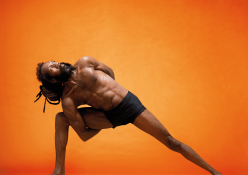Having too much on your plate can be detrimental to your health and happiness. Hit the brakes, we say. Here’s why you should slow down.
The demands of the modern-day world are manifold and mighty – juggling parenthood and a job, moonlighting after a nine-to-five at the office to make ends meet, or studying part-time while working a job are par for the course in the current economic climate. But although burning the candle at both ends might be necessary for financial or professional survival, pushing yourself to the limit can take its toll on other fronts if you do not properly manage it.
Cause and effect
‘Some people are able to cope better than others in a fast-paced world, and a certain amount of stimulation can be invaluable in terms of keeping us engaged with life,’ says Linda Kantor, counselling psychologist and co-director of the Cape Town Mindfulness-Based Stress Reduction Programme.
‘But being on the go 24/7 can have negative emotional effects, such as anxiety, frustration, physical pain and panic attacks, as well as a general sense of disconnection and depletion. It’s like driving a car all day, then leaving the engine running overnight.’
The dilemma
Studies have shown that chronic stress is a very powerful destructive force – researchers have linked it to a slew of health, mental health and behavioural issues, including diabetes, heart disease, obesity, drug and alcohol use, reduced focus, anxiety, insomnia, fatigue, headaches and muscle pain.
But the fact remains that deadlines need to be met, mouths must be fed, bills have to be paid and living isn’t cheap.
So, what is the solution to this, our modern dilemma? How can we slow down and stress less, but still manage to achieve all the goals we want and need to?
Take it easy
In the past few decades, a growing number of counsellors, therapists and individuals have been turning to ‘mindfulness’ as an answer to this very question.
‘Mindfulness is a practice, not just an idea. It sounds like a paradox, but it’s essentially a focus on doing something by not doing anything,’ clarifies psychologist Cornel Verwey. ‘It all goes back to that old-school wisdom of remembering to smell the flowers as you journey down the path of life.’
These days, most of us are moving at such a fast pace that it’s harder than it ever was for us to slow down and reconnect with ourselves and those around us, he says. ‘We use so much unnecessary energy on worrying about things that have happened or things that may yet come about in the future, but the reality is that the past is done and the future hasn’t happened yet, so all we have is now. Learning how to be present in the moment is an excellent antidote to the pace and pressures of life.’
The art of distraction
Besides helping us to slow down, to de-stress and ground ourselves, practising mindfulness could also serve another purpose, says Cornel: developing ‘psychological stamina’ to deal with less pleasant emotions. It’s easy to protect ourselves from the things we don’t want to feel by staying busy – and we can justify such ‘busyness’ as necessary and important, but it can be a defence against deeper seated feelings of discomfort. It offers temporary relief, but ultimately it’s like a hamster on a wheel, never really addressing the original anxiety.
‘Life is full of both good and bad emotions – and you can’t neglect either if you want to be in touch with yourself. And to achieve that feeling of being grounded, solid, safe and secure, you will have to spend time getting closer to your feelings, no matter what they are, and not give yourself a hard time about them,’ he emphasises.
It works if you work it
Mindfulness can be practised both formally and informally, says Linda. It is useful to take time out every day for doing a formal mindfulness practice (sitting meditation, mindful movement, a mindful body scan, mindful eating and mindful walking), but we can also practise informally by simply bringing the awareness to the moment of our lives more often and finding activities that naturally slow you down and being present to them, such as an art class, a walk on the beach, time in nature or just listening to gentle music.
Ignore your inner naysayer
Psychologist Linda Kantor says most people tend to shy away from practising meditation techniques as they come up against feelings they’ve resisted and avoided in the past. They start to notice their fatigue, irritation, anxiety or boredom, and then react to those feelings. ‘But the value of learning to be present in moments of difficulty and noticing your reactions can help you to make different choices when faced with stressful situations and lead to more peace and compassion for yourself.’
Time out
Sit still and observe the breath in the moment, advises psychologist Cornel Verwey. This doesn’t require thought or judgement. When thoughts enter your mind, don’t judge them; watch them as you would small white clouds in a big blue sky, letting them drift by. Avoid ‘hooking on to’ them, so that they don’t turn into a chain reaction – just let them pop up and then let them go.
Allow your emotions to come through – and ask yourself just what you’re feeling. Try to keep bringing your attention back to breath, even if you have to do it a thousand times. Every one of those times is a ‘practice round’ that will ultimately help you on your journey to mastering the technique of mindfulness.
Take yourself back to the senses. Although breathing techniques are rated among the most accessible ways to practise mindfulness, getting in touch with the other senses is equally effective. When you are eating, pay full attention to the taste of the food or focus on really listening to the sounds around you.





